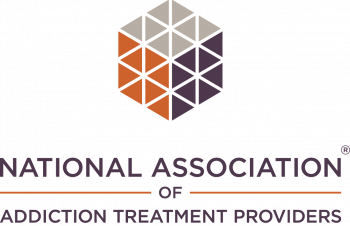The course of our lives sometimes leads to dark clouds, where very bad things happen. It might involve becoming a crime victim, losing a loved one suddenly, or some other painful experience. The different types of trauma one can experience, unfortunately, are seemingly never-ending.
Not everyone can simply shake off a horrible experience. Sometimes traumas stay with us for long periods, embedding themselves in our subconscious. When that happens, it can lead down the wrong road — ending up in a period of substance abuse. Drugs or alcohol help dull the pain for a while, but then the troubles multiply.
Substance abuse doesn’t care about the types of trauma you’ve experienced. But when you find yourself struggling, your best bet is to seek professional assistance from a facility such as TruHealing Gaithersburg and begin a trauma therapy program.
Trauma and Substance Abuse
The connection between trauma and substance abuse is undeniable. The National Survey of Adolescents, for instance, found that teens victimized by sexual or physical abuse or assault were three times more likely to report substance abuse than someone who had not experienced trauma. Other surveys reported by the National Institutes of Health determined that as much as 70 percent of substance abuse clients had histories of abuse.
Unsurprisingly, people who face trauma and substance abuse show a high rate of post-traumatic stress disorder or PTSD. It’s easy to understand why — needing relief from the pain, it becomes too difficult to resist the brief respite provided by drugs or alcohol.
The problem, then, is that the difficulties multiply. Drugs or alcohol create problems in daily life, including interrupted sleep, becoming removed from friends and family, losing the ability to feel or being prone to anger or irritability. And the cycle worsens.
Types of Trauma
Trauma doesn’t always have to be something that happens to you. It can simply be something you experience. For instance, living in a neighborhood with a lot of crime can be traumatic. This is an experience that can stay with someone, become deep-seated, and result in substance abuse. Different types of trauma include:
- Surviving a natural disaster
- Exposure to war
- Becoming a victim of a crime
- Being in an accident
- Neglect
- Serious injury or illness
- Losing a cherished friend
Whatever the types of trauma you experience, the risk is high that you can lapse into the abuse of drugs or alcohol. And if that happens, it’s time to seek treatment through rehab, including detox and counseling.
Recovering from Trauma
It’s important when you seek treatment to be open with your counselors about the types of trauma you have faced. The reason: Counseling is fundamental to success in treatment and rehab. You will work within different therapy programs, both alone and with a group, to identify the issues that most trouble you.
But you also may participate in trauma-focused therapy. Trauma-focused therapy is a specialized branch of therapy. Counselors look to help you establish the role that the traumas play in who you are. In growing that understanding, you can become stronger as you evaluate your reactions and responses. The idea is to help you grow.
At TruHealing Gaithersburg We’re Ready to Help You
Traumatic events can stay with a person for a long time — no matter the types of trauma they are experiencing. They can become deep-seated and lead to substance abuse. If this describes you or a loved one, then you’re wise to get help from a treatment/rehab center such as TruHealing Gaithersburg. At TruHealing Gaithersburg, our staff focuses on your well-being, carefully developing a customized program that both helps bring the substance abuse under control and help you deal with the trauma. The staff at TruHealing Gaithersburg has many years of experience addressing all forms of substance abuse and counseling. During your time here, you will learn coping skills aimed at stopping addictive behaviors. Let us help you build a brighter future. Call a TruHealing Gaithersburg counselor at (833) 625-0398 today for an initial confidential consultation.









